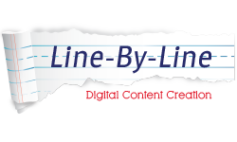Do you have a calendar or daily to-do list?
Is there a calendar on your phone or in a planner that contains your goals, project deadlines, appointment times, meeting reminders, and conference calls?
Can you imagine how you’d get through your day without it?
Most successful people need some type of system to keep them organized and accountable so major goals and responsibilities don’t get forgotten.
Just as you need a calendar to keep your workday organized, you also need a calendar to manage the content your business is creating.
This important management tool is called an content calendar, and it is crucial to your business success.
What is an Content Calendar?
An content calendar is a schedule used by social media experts, bloggers and marketers to plan, organize and schedule their content.
It is a publishing schedule for the upcoming week, for the next month or for the coming year.
Depending on your business, your content calendar might include your blog topics, your social media updates, your videos or your infographics. It might also include company events, special recognition days, or other events you may want to generate content for.
While your content calendar should be a strategic plan, it should not be set in stone. It needs to be flexible to adapt to timely topics, last minute changes or other business updates.
What To Include in Your Content Calendar
Your content calendar should include the who, what, where, when, why and how of your content.
Your content calendar might include:
- Your major categories or themes. Your calendar should identify the various topics you want to write about or discuss.
- The types of content to be created. You can plan the combination of blog posts, social media updates, press releases, podcasts, videos, webinars, etc. you want to create that will best meet your marketing objectives.
- Who is responsible. Having multiple contributors is helpful in managing the content workload and offering different perspectives on topics. But only if everyone can see the big picture. Listing who is responsible for what helps to keep all your contributors on the same page.
- Deadlines. Your content calendar should include a submission deadline that allows for enough time to make edits before your publishing date.
- Publishing date. This is the date you plan to publish your edited content for your audience to read, view, listen to and respond to.
Here are six reasons why having a carefully crafted content calendar in place is crucial to your business’s success
- It keeps you organized. Having a plan of what content will be released will help confirm you are covering the topics and issues that are important to your audience.
- It keeps you accountable. Knowing that there are tasks to be completed on a certain schedule helps to make sure you get it done.
- It ensures consistency of posts. With a content calendar, you will avoid posting “spurts” of content some weeks followed by a dry-spell during your busier weeks.
- It takes the stress out of coming up with a topic. When you know the topic you are going to write about ahead of time, you won’t be under pressure to both find a topic and prepare the content for it.
- It ensures a consistent voice throughout your content. Delivering a consistent message with the same overall “tone” is important to developing and maintaining your brand. By planning ahead, you’ll have time to make sure that your voice sounds the same throughout.
- It establishes you as a professional. Having a regular schedule of helpful content going out through different outlets will impress your audience. Sharing your knowledge and providing information about real issues and problems your audience faces makes you a credible resource they will want to do business with.
Your content calendar should be a constantly evolving tool that you refer to on a daily basis, just as you would your regular calendar or daily planner. It serves as a document for existing and future content, and content that can be repurposed and used on other media outlets.
It ‘s also an archive of all of the content you have produced.
How has your use of a content calendar benefitted your business?
If you’d like to receive my best advice, please join my mailing list:

